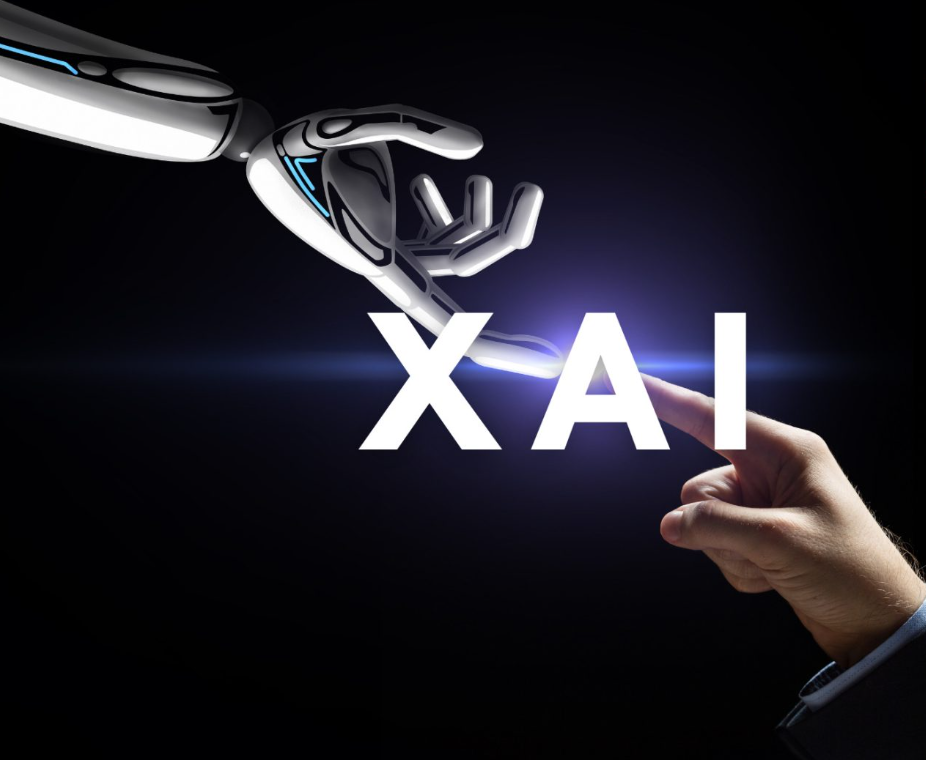The AI Showdown: Is Meta’s Open Source Gamble the End of OpenAI’s Empire?
The air in Silicon Valley crackles with electric tension. This isn’t your typical tech rivalry — this is a full-blown war for the future of artificial intelligence, and the battlefield is littered with billion-dollar strategies and paradigm-shifting moves. In one corner stands OpenAI, the reigning champion of proprietary AI, counting its billions while guarding its crown jewels behind closed doors. In the other corner? Meta, the rebellious challenger throwing open the vault and giving away what should be worth billions.
This isn’t just business competition — it’s a philosophical death match that will determine whether AI remains the exclusive playground of tech elites or becomes the great equalizer of our time.
The Billion-Dollar Chess Move
Picture this: You’ve spent years and billions of dollars creating the most sophisticated AI models on the planet. The logical move? Lock them up tighter than Fort Knox and charge everyone who wants a taste. That’s exactly what OpenAI did, and it worked brilliantly — until Meta decided to flip the entire game board.
Meta’s Llama strategy is audacious beyond belief. They’re essentially saying, “Here’s technology worth billions. Take it. Use it. Improve it. Oh, and it’s completely free.” It sounds insane until you realize it’s the most calculated business move in tech history.

Mark Zuckerberg wasn’t being philanthropic when he declared, “Open-source will ensure that more people around the world have access to the benefits and opportunities of AI, that power isn’t concentrated in the hands of a small number of companies.” He was declaring war.
The Revenge of the Platform Wars
Meta learned the hard way what happens when you don’t control the platform. For years, they’ve been dancing to Apple and Google’s tune on mobile, paying the piper and following the rules. Now, with AI poised to become the next great platform, Meta is determined to write the rules this time.
This is where things get fascinating. While OpenAI is busy collecting API fees like a digital toll booth, Meta is building something far more valuable — an empire of influence. Every developer who builds on Llama, every startup that fine-tunes their models, every researcher who contributes improvements is unknowingly joining Meta’s army.
Dr. Fei-Fei Li from Stanford hits the nail on the head: “The democratization of AI through open-source initiatives could be the great equalizer we’ve been waiting for. When you remove the barriers to access, you unleash innovation from unexpected corners of the world.”
The Commoditization Bomb
Here’s where Meta’s strategy becomes truly diabolical. They don’t need to beat OpenAI — they just need to make them irrelevant. It’s the classic innovator’s dilemma playing out in real-time. When Linux started challenging expensive UNIX systems, it didn’t need to be better initially. It just needed to be good enough and free.
The math is brutal for OpenAI. They’re reportedly pulling in over $2 billion annually from their API business. But what happens when developers can get 90% of the capability for 0% of the cost? The economics become impossible to ignore.
Professor Michael Cusumano from MIT puts it perfectly: “When a platform becomes open and accessible, it tends to win through sheer volume and network effects, even if it starts out technically inferior to closed alternatives.”
The Community Superweapon
While OpenAI’s brilliant team toils away in their labs, Meta has unleashed something far more powerful — the collective intelligence of thousands of developers worldwide. Within months of Llama 2’s release, the community created thousands of specialized variants for everything from medical diagnosis to creative writing.
Dr. Yann LeCun, Meta’s Chief AI Scientist, can barely contain his excitement: “When you have thousands of brilliant minds working on improving your technology, you get a rate of innovation that no single company can match. The diversity of use cases and applications that emerge consistently surprises even us.”
This isn’t just faster development — it’s innovation at light speed. OpenAI might have the best researchers money can buy, but Meta has something money can’t buy: an army of passionate contributors working around the clock, across every timezone, solving problems OpenAI never even knew existed.
The Global Power Play
The implications stretch far beyond Silicon Valley boardrooms. Countries worldwide are watching this battle with intense interest because it’s really about technological sovereignty. No nation wants to build their AI future on another country’s proprietary foundation.
Dr. Kai-Fu Lee, former head of Google China, explains the stakes: “No country wants to be dependent on another nation’s proprietary AI systems for their critical infrastructure. Open-source AI provides a path to technological independence that closed systems simply cannot offer.”
The EU is already betting heavily on open-source AI as part of their digital sovereignty strategy. China is developing its own models rather than becoming dependent on U.S. systems. The battle lines are being drawn, and they favor open approaches.
OpenAI’s Desperate Defense
Sam Altman isn’t panicking — yet. But OpenAI’s response reveals just how seriously they’re taking this threat. They’re racing to stay ahead technologically while pivoting toward services and vertical integration. “The real value we provide isn’t just the raw capability of our models, but the entire ecosystem around them,” Altman argues.
It’s a compelling argument, but history isn’t on their side. When the underlying technology becomes commoditized, it’s nearly impossible to maintain premium pricing at higher levels of the stack. Ask IBM how well their services strategy worked when open-source alternatives emerged.
The company is also doubling down on “AI safety” and “alignment research” — partly because it’s important, but partly because it’s one area where they might maintain an edge. But even here, the open-source community is rapidly catching up.
The Innovation Explosion
Here’s where things get really exciting. When powerful AI tools become freely accessible, researchers in completely different fields can apply them to problems Silicon Valley never imagined. Dr. Regina Barzilay from MIT is using open-source models to accelerate drug discovery. Climate researchers are applying them to renewable energy materials. Educators in developing countries are creating learning tools that would have been impossible to access otherwise.
“The most impactful applications of AI might come from domains we haven’t even thought of yet,” notes Dr. Timnit Gebru. “Open-source development ensures that these innovations can emerge from anywhere, not just from the research labs of a few well-funded companies.”
This is innovation democracy in action — and it’s accelerating at a pace that should terrify anyone betting on closed systems.
The Economic Earthquake
What we’re witnessing isn’t just a business strategy shift — it’s the potential emergence of an entirely new economic paradigm. Professor Erik Brynjolfsson from Stanford captures the magnitude: “We might be witnessing the emergence of a new economic paradigm. In the AI era, the value might not be in owning the models themselves, but in what you do with the data and insights they generate.”
If foundational AI models become commoditized utilities like electricity or internet bandwidth, where does the value go? The answer could reshape entire industries.
For enterprises, the calculation is becoming stark. Why pay millions annually for API access when you can run equivalent workloads on self-hosted models for a fraction of the cost? CFOs are starting to ask these questions, and their answers won’t favor premium pricing models.
The Talent Wars Heat Up
The battle for AI talent is getting vicious, and philosophical alignment is becoming a major factor. Many researchers are drawn to Meta’s mission of democratizing AI access, while others prefer OpenAI’s well-funded, focused environment.
Dr. Pieter Abbeel from UC Berkeley observes: “We’re seeing a bifurcation in the AI talent market. Some of the best minds are drawn to the openness and collaborative nature of projects like Llama, while others prefer the focused, well-resourced environment of organizations like OpenAI.”
The winner of this talent war could determine everything else.
The Four Possible Futures
As this battle intensifies, four scenarios emerge:
The Commoditization Victory: Open-source models achieve parity, API businesses collapse, and value shifts to applications built on free AI infrastructure. This is Meta’s dream scenario.
The Premium Defense: OpenAI maintains enough technological and service advantages to justify premium pricing. The market splits between enterprise premium users and open-source adopters.
The Convergence: Both approaches eventually merge, with proprietary companies adopting open practices while open-source projects develop sustainable business models.
The Regulatory Reset: Government intervention reshapes everything based on safety, security, or competition concerns.
Each scenario has radically different implications for every player in the ecosystem.
The Winner Take All Moment
Here’s the truth that keeps executives awake at night: we’re approaching a winner-take-all moment in AI. The decisions made in the next 18–24 months will determine the structure of the AI economy for decades.
Meta is betting everything that open-source AI will follow the same trajectory as open-source software — starting inferior but eventually dominating through network effects and community innovation. OpenAI is betting that superior technology and integrated services will maintain their moat.
Only one of them can be right.
The Ultimate Irony
The most delicious irony? The ultimate winners of this titanic battle might not be either company. It could be the millions of developers, researchers, and entrepreneurs who will suddenly have access to AI capabilities that were unimaginable just years ago.
Dr. Oren Etzioni, former CEO of the Allen Institute for AI, captures the moment perfectly: “We’re potentially witnessing the democratization of one of the most powerful technologies ever created. The long-term implications extend far beyond the fortunes of any individual company.”
The Verdict
The AI war is just beginning, but the early moves suggest Meta’s open-source gamble might be the most brilliant strategic play in tech history. By giving away their crown jewels, they’re not losing billions — they’re potentially winning the entire future of artificial intelligence.
OpenAI built an empire by keeping AI locked away. Meta is betting they can topple that empire by setting it free. The next few years will determine who was right, but one thing is certain: the world will never be the same.
The revolution has begun. Pick your side wisely.
Authored By: Shorya Bisht

No comments:
Post a Comment